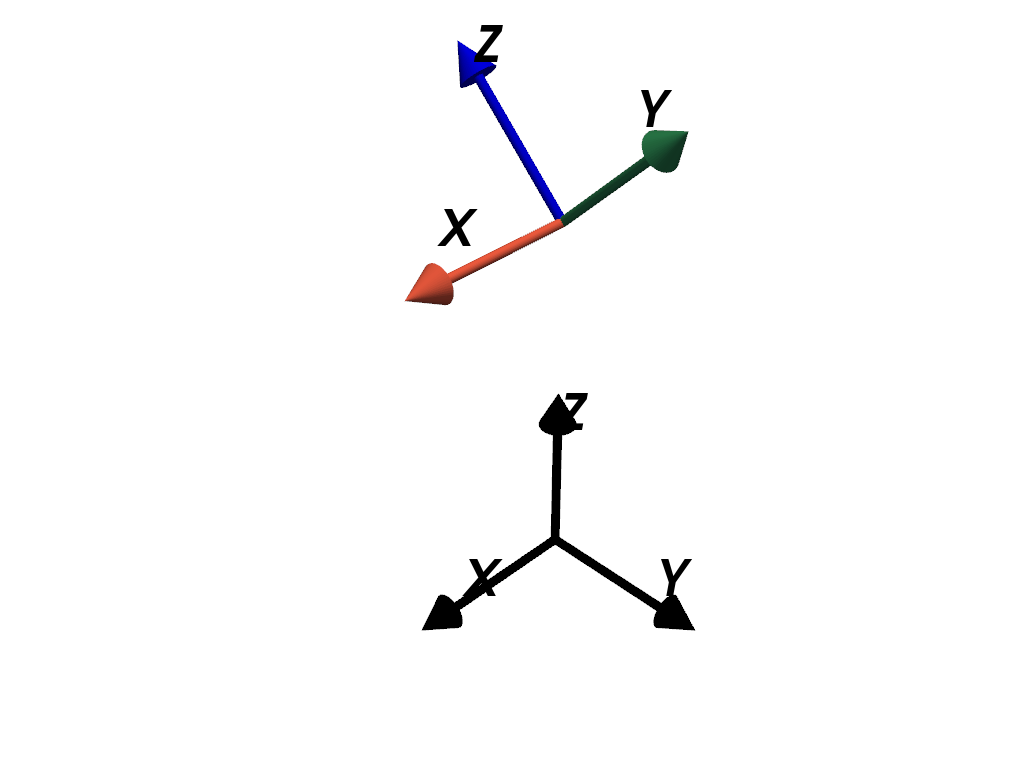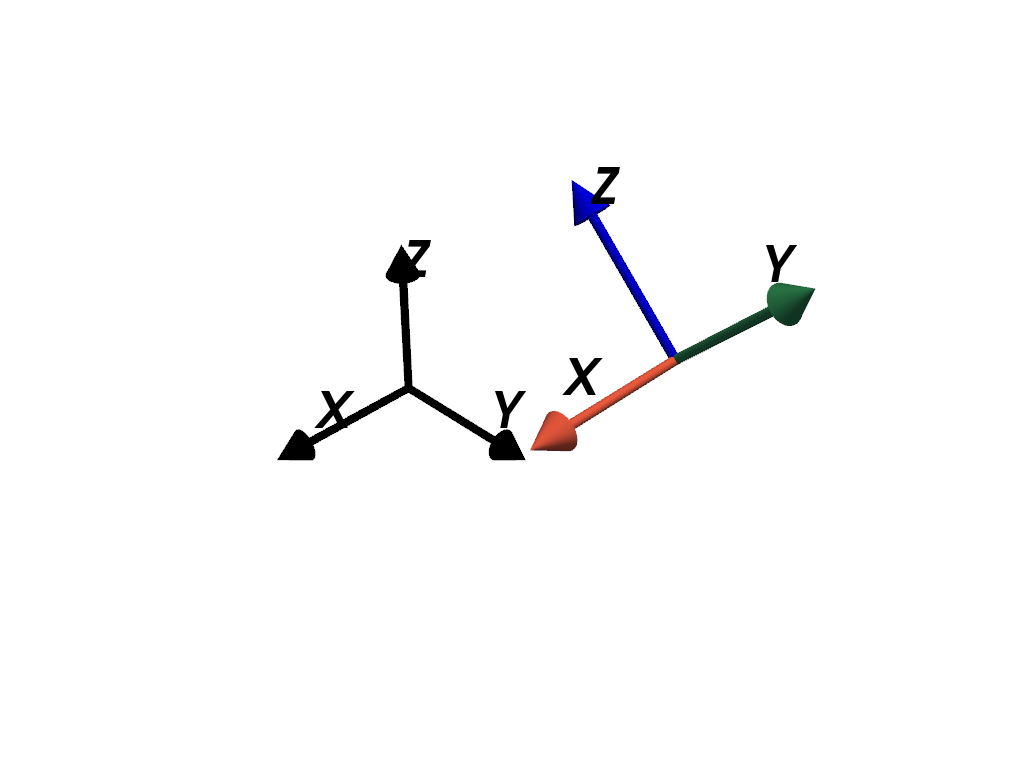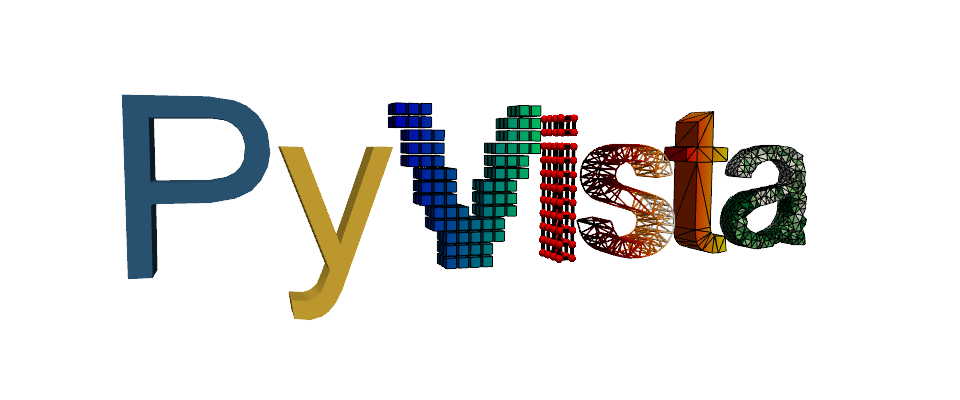pyvista.AxesAssembly.orientation#
- property AxesAssembly.orientation: tuple[float, float, float][source]#
Return or set the axes orientation angles.
Orientation angles of the axes which define rotations about the world’s x-y-z axes. The angles are specified in degrees and in x-y-z order. However, the actual rotations are applied in the following order:
rotate_y()first, thenrotate_x()and finallyrotate_z().Rotations are applied about the specified
origin.Examples
Create axes positioned above the origin and set its orientation.
>>> import pyvista as pv >>> axes = pv.AxesAssembly( ... position=(0, 0, 2), orientation=(45, 0, 0) ... )
Create default non-oriented axes as well for reference.
>>> reference_axes = pv.AxesAssembly( ... x_color='black', y_color='black', z_color='black' ... )
Plot the axes. Note how the axes are rotated about the origin
(0, 0, 0)by default, such that the rotated axes appear directly above the reference axes.>>> pl = pv.Plotter() >>> _ = pl.add_actor(axes) >>> _ = pl.add_actor(reference_axes) >>> pl.show()

Now change the origin of the axes and plot the result. Since the rotation is performed about a different point, the final position of the axes changes.
>>> axes.origin = (2, 2, 2) >>> pl = pv.Plotter() >>> _ = pl.add_actor(axes) >>> _ = pl.add_actor(reference_axes) >>> pl.show()

